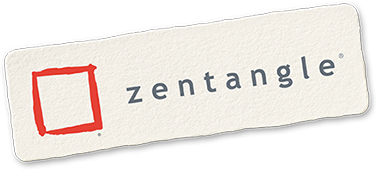In the beginning of the month (May 2021), we shared with you that we would be honoring Mental Health Awareness in our blogs and Project Pack No. 14 videos (beginning May 21st). After we shared Molly’s blog, Vitamin Z, we received an e-mail from our friend and CZT in Spain, Maria Tovar. For a few years now, Maria and her sister, Mercedes, have been teaching Zentangle courses to future nurses in Spain as part of series for non-pharmacological treatments for mental illness.
Maria and Mercedes are happy to share their story with the Zentangle Community.
Maria Tovar writes…
We have had the luck of teaching a Zentangle class at the Medicine college, Autónoma University in Madrid, for the third year (we started on 2019).
It was part of a Seminar about non-pharmacological treatments for mental illness, and our students were Nursing students attending their last year at University, they will be working in few months.

Our experience was very positive, they absolutely understood the potential inside the Zentangle Method to calm anxiety, to relax patients with stress problems, to stimulate them in case of lack of self-esteem.
In the course, we worked together with the Chief Nurse of a Psychiatric Hospital in Madrid, Hospital Doctor Lafora. For more than three years we have been teaching Zentangle to nurses working there, in order to use it in their Art therapy classes. Every 3 weeks they practice Zentangle with some of the patients just before going to bed.
They told us that on the “Zentangle day,” patients reduce their medication to sleep, because they don’t need it after tangling in a group. Besides that, session after session, they feel more comfortable with their strokes, accepting their works with less and less self-criticism.
Last two weeks we were asked to teach 3 groups of teenagers with mental illness from diverse origins and we were asked to teach them because the nurses in charge of this groups were students in our first class at Hospital Dr Lafora and they strongly believe in Zentangle as an art therapy to this kind of patients.
We hope we’ll be able to, “one stroke at a time”, introduce Zentangle to more people related with mental illness, as psychologists, psychiatrists, nurses, social intermediaries, and people taking care of this kind of patients, who most of the times are in a forgotten area of medical and social questions.
This kind of Seminars, classes and workshops are the most valuable for us. We say, that in these classes, we learn much more than what we teach.

We were thrilled the learn about the work that Maria and Mercedez are doing in Spain and are so grateful for the work that they, at CZTs all over the world do each day to share the Zentangle method with their communities.



Shirley Hewitt.CZT36 on